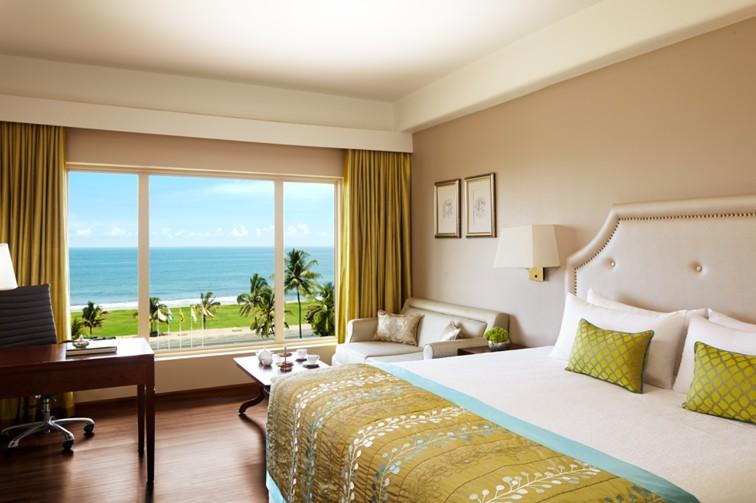%20(Presentation)%20(1600%20x%20600%20px)(220)-7f666821-ca69-4c74-af54-dda2cbd9164a.webp&w=3840&q=75)
Hotels
•03 min read

Bali's crystal-clear waters and colorful marine life create a stunning underwater scene. Many dream of exploring its depths and discovering coral reefs filled with life. This blog post answers the question: is it safe to snorkel in Bali? We will share snorkeling safety tips, highlight the best snorkeling spots in Bali, and offer guidance for both beginners and experienced snorkelers. By reading on, you will learn how to enjoy Bali snorkeling conditions safely and responsibly.
Bali is one of the world’s top snorkeling destinations. Yet, like any ocean adventure, safety is crucial. Local ocean safety in Bali is important to appreciate. Many snorkelers worry about strong currents, unpredictable weather, and equipment issues. It is wise to study these details before diving into Bali underwater activities.
Bali’s warm waters attract thousands of snorkelers. However, the ocean can be unpredictable. Currents and tides change and may affect your safety. Many marine life species are harmless, but some require special attention. In Bali, knowing the conditions is as important as enjoying the beauty below the surface.
There are unique ocean conditions in Bali. For example, areas like Nusa Penida have strong currents. Always check tide and weather forecasts. Ensure you know the local ocean safety advice. This way, you avoid surprises and can explore with confidence.
Bali offers many spots that are perfect for snorkeling. Some locations are calm and great for beginners, while others offer exciting adventures for the experienced. Consider these areas when planning your trip.
Nusa Dua is known for its calm waters. This makes it a popular choice for snorkelers starting out. In contrast, Amed and Tulamben offer vibrant coral reefs and the famous shipwreck of the USAT Liberty. Menjangan Island is another gem. Its pristine coral gardens and gentle sea conditions allow a serene snorkeling experience.
Snorkelers in Bali can see a dazzling world of marine life. Reef fish in bright colors, graceful sea turtles, and the occasional manta ray make the experience magical. Respecting marine life is as important as safety. Avoid touching coral reefs or marine animals to protect yourself and the underwater environment.

Following safe snorkeling practices is key to a worry-free experience. Both beginners and experienced snorkelers benefit from knowing what to do before and during their adventure.
Always snorkel with a buddy or guide. This safety tip helps in difficult situations. Keep hydrated and rest when needed. Use reef-safe sunscreen to protect both your skin and the coral reefs.
If you are new to snorkeling, start with calm waters like those at Blue Lagoon or Padang Bai. Practice breathing techniques on dry land first. Make sure your equipment fits well and is in good condition. Safe snorkeling practices improve your confidence in the water.
Pro Tip: "Always consult with local snorkeling guides to understand the best entry and exit points, as well as potential hazards like strong currents or jellyfish."
Preparation is the key to a safe snorkeling experience in Bali. The right gear and information can make all the difference. Here is a simple guide to getting ready for your trip.
Ensure you have all the essential equipment. The basics include a snorkel, mask, fins, and a buoyancy vest. Some items add comfort and convenience. An underwater camera captures your memories. Anti-fog spray and water shoes help you adapt to unexpected conditions. When renting gear, check that it fits properly and is well maintained.
Bali has varying conditions throughout the year. The best snorkeling months are from April to October. During these months, the seas are calm and the visibility is excellent. In the rainy season from November to March, rougher conditions can affect your adventure. Knowing the season helps you plan a safer trip and maximize your underwater experience.

Yes, Bali is generally safe for snorkeling, especially in areas with calm waters. Following safety guidelines and using local guides enhances safety.
Yes, but caution is needed. Some areas have strong currents. Researching ocean conditions before you swim is important.
April to October is the ideal period. The calm seas help beginners and experienced snorkelers alike.
No, use bottled or filtered water to avoid stomach problems.
Yes. Beginners should choose calm spots like Nusa Dua or Blue Lagoon, where conditions are more secure.
In summary, Bali offers breathtaking snorkeling adventures. Its vibrant marine life and stunning coral reefs are a joy to explore. With proper safety practices and careful preparation, you can safely enjoy Bali underwater activities. Always follow local advice and respect the environment to ensure your adventure is both safe and unforgettable. Experience the magic of Bali's underwater world with confidence and care.